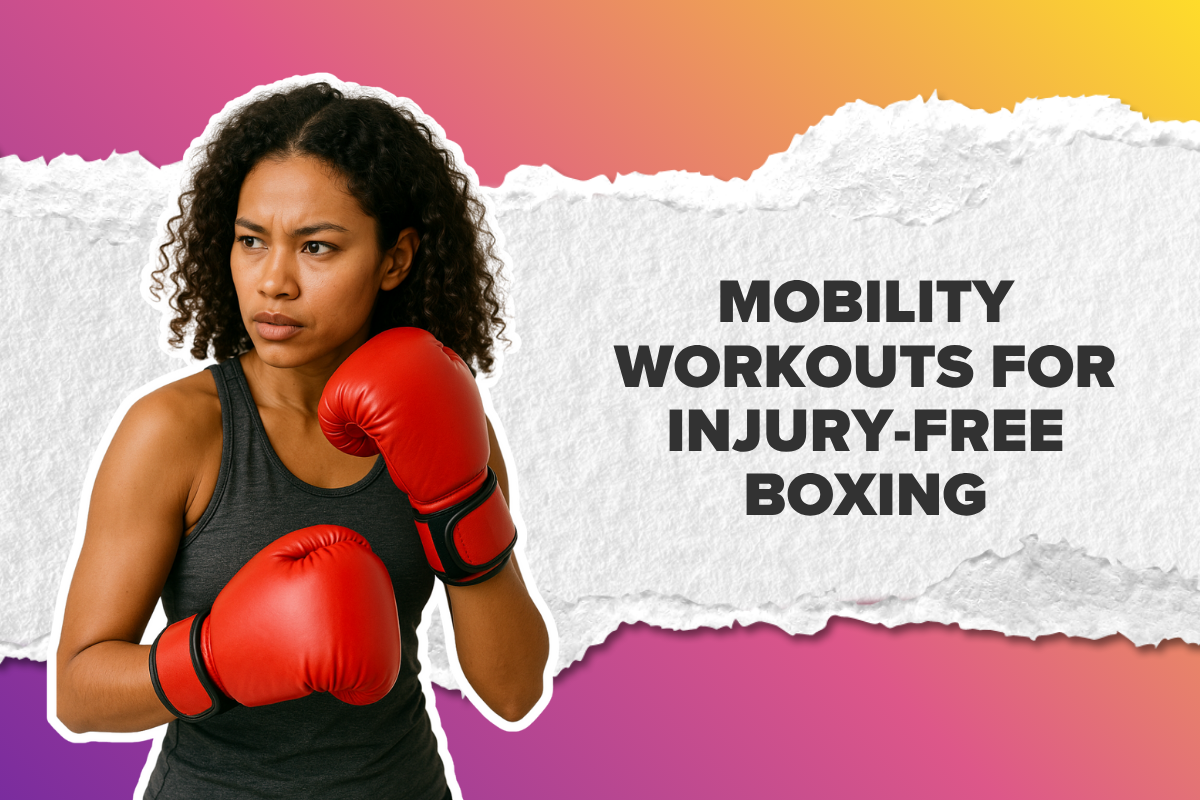After a tough boxing session, your body has gone through a lot—explosive punches, high heart rates, and constant movement. You’ve burned through energy, stressed your muscles, and lost fluids through sweat. That’s why recovery nutrition is just as important as the workout itself. What you eat after training directly affects how your body repairs, rehydrates, and gets stronger.
Here’s a breakdown of the best recovery foods and nutrition strategies every boxer should know—especially women who want to train hard and recover smart.
Why Post-Workout Recovery Nutrition Matters
After an intense boxing session, your muscles are depleted of glycogen (your body’s stored form of energy) and your tissues need amino acids to rebuild. Eating the right foods post-workout helps:
-
Replenish glycogen stores so you have energy for your next session
-
Repair muscle fibers and support lean muscle growth
-
Reduce inflammation and speed up recovery
-
Rehydrate and replace lost electrolytes
When you give your body the right fuel, you recover faster, feel stronger, and avoid burnout.
The Ideal Recovery Window & Macros
The best time to eat is within 30–60 minutes after training, when your body is primed to absorb nutrients efficiently.
Aim for:
-
Carbohydrates: 30–60 g (to restore glycogen and energy)
-
Protein: 15–30 g of complete protein (for muscle repair)
-
Fats: A small amount for hormone balance and satiety
-
Fluids: Water or electrolyte-rich drinks to replace what you’ve lost
A good post-boxing meal should balance carbs + protein + fluids with nutrient-dense, whole-food ingredients.
Top Recovery Foods and Meal Ideas
1. Lean Meats and Fish
Lean chicken, turkey, or salmon are rich in protein and easy to digest. Salmon adds omega-3s, which help reduce inflammation.
Meal idea: Grilled salmon with brown rice and steamed vegetables.
2. Eggs and Greek Yogurt
Eggs are a great source of leucine, an amino acid that triggers muscle repair. Greek yogurt offers protein, probiotics, and calcium.
Snack idea: Greek yogurt with honey, berries, and a sprinkle of chia seeds.
3. Whole Grains and Starchy Carbs
Carbs are your body’s refueling station. Choose complex carbs like quinoa, oats, or sweet potatoes for long-lasting energy.
Meal idea: Quinoa bowl with chicken, avocado, and veggies.
4. Fruits and Vegetables
Packed with antioxidants, fruits and veggies help reduce muscle soreness and support recovery.
Quick option: Banana with almond butter or a berry smoothie with spinach.
5. Nuts, Seeds, and Nut Butters
These provide healthy fats, magnesium, and zinc—important for recovery and hormone health.
Snack idea: Whole-grain toast with peanut butter and sliced banana.
6. Milk and Chocolate Milk
Chocolate milk is surprisingly effective for recovery. It offers the perfect ratio of carbs to protein and replaces electrolytes quickly.
Tip: Opt for low-sugar or dark chocolate versions when possible.
7. Smoothies and Shakes
If you don’t feel like eating a full meal, smoothies are a perfect post-training choice.
Blend together: Protein powder, banana, spinach, almond milk, and oats for a balanced, nutrient-dense drink.
Sample Recovery Combos
| Type | Example | Purpose |
|---|---|---|
| Quick Snack | Protein shake + banana | Fast-absorbing nutrients after training |
| Full Meal | Chicken, sweet potato, and greens | Complete balance of carbs, protein, and micronutrients |
| On-the-Go Option | Greek yogurt + granola + fruit | Portable, easy to digest |
| Hydration Boost | Coconut water + pinch of sea salt | Replenishes electrolytes naturally |
Female-Specific Nutrition Tips
-
Iron & Calcium: Include iron-rich foods like spinach and red meat, and calcium sources for bone strength.
-
Hormonal Balance: Add healthy fats from avocado, flaxseeds, and olive oil to support hormonal recovery.
-
Hydration Matters: Women often dehydrate faster, so drink plenty of fluids before and after training.
-
Avoid Skipping Meals: Under-fueling slows recovery and increases fatigue—make recovery nutrition a non-negotiable part of training.
Final Thoughts
The key to bouncing back after a hard boxing session isn’t just rest—it’s what you eat and when you eat it. Combine protein, carbs, and fluids to rebuild, refuel, and rehydrate your body. From smoothies and lean meats to fruits and whole grains, smart nutrition sets you up for your next session feeling strong and ready.
And when you’re ready to pair top-tier nutrition with top-tier gear, check out KO Studio—a women’s boxing gear company designed to support you in every round, from warm-up to recovery.



